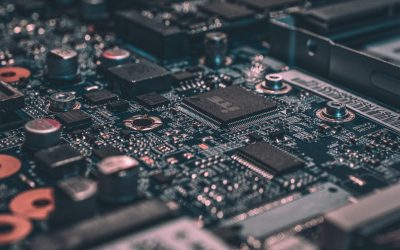The field of hospital technology is rapidly evolving, with new advancements and innovations being introduced all the time. In recent years, there has been a growing demand for professionals who can work with electronic health records (EHRs) and other technologies to improve the efficiency and quality of healthcare delivery.
What do EHR Professionals do?
Professionals who work with electronic health records (EHRs) are in charge of setting up, maintaining, and utilizing the systems that allow for the management and storage of patient health data. To make sure the EHR system is incorporated into a healthcare organization’s everyday operations and satisfies the needs of both patients and healthcare providers, they work closely with healthcare professionals. EHR experts are also in charge of educating staff members on how to utilize the system, guaranteeing data security and accuracy, and debugging any potential problems. Additionally, they seek to guarantee that the EHR system meets the changing demands of the healthcare business by continuously improving it.
What is the future of EHR professionals?
One of the most exciting developments in the field of hospital technology is the increasing use of robotics. From robot-assisted surgery to automated medication dispensing systems, robotics is playing an increasingly important role in improving patient outcomes and streamlining hospital operations. As a result, there are a growing number of job opportunities in the field of hospital technology, including roles in EHR implementation and management, robotics engineering, and healthcare IT.
What do EHR professionals need for the future?
In order to compete in the employment market, those who are interested in a career in healthcare technology ideally have a solid background in computer science, programming, and data analysis. This involves having a working knowledge of a variety of programming languages as well as prior database, software development, and data analysis expertise. Both EHR professionals who must properly build and administer EHR systems and robotics engineers who create and improve medical robots require these technological skills.
Aspiring technology personnel should have a solid awareness of healthcare regulations and standards in addition to technical skills. This involves being aware of laws like the Health Insurance Portability and Accountability Act (HIPAA) as well as being aware of the particular demands of healthcare organizations. This information is essential for guaranteeing the security, compliance, and efficiency of EHR systems and other technological solutions.
Finally, employers also place high importance on experience working with healthcare systems. This includes experience working with clinical workflows, managing health data, and understanding the unique challenges of the healthcare environment. Individuals who have a background in healthcare or experience working in a healthcare setting are often highly valued by employers, as they have a deeper understanding of the needs and goals of healthcare providers.
In conclusion, the field of hospital technology is rapidly growing, with exciting new advancements and job opportunities emerging all the time. Whether interested in working with EHRs or robotics, there has never been a better time to explore the growing field. See how you can find a career in hospital technology on a path that aligns with your skills and interests.










